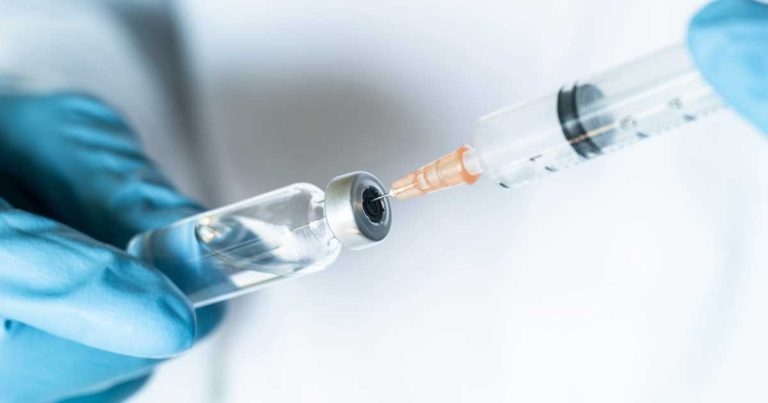11 Nov 2022
The 2021 UK Veterinary Antimicrobial Resistance and Sales Surveillance report shows the volume of antibiotics sold for use in food-producing animals has dropped by 55% since 2014.

Image: © PhotobyTawat / Adobe Stock
Vets and farmers have been praised for their efforts to curb antibiotic use after new figures showed sales for food production processes are at their lowest level since records began.
Data from the UK Veterinary Antimicrobial Resistance and Sales Surveillance (VARSS) 2021 report, published by the VMD, revealed the volume of veterinary antibiotics sold for use in food-producing animals has dropped by 55% since 2014 to 28.3mg/kg.
Meanwhile, use of the highest priority critically important antibiotics (HP-CIAs), which accounts for 0.4% of the total, has also been slashed by 83% during the same period.
Cat McLaughlin, chairperson of the Responsible Use of Medicines in Agriculture Alliance (RUMA), said the industry had not wavered in its antimicrobial resistance (AMR) commitment despite the economic and disease challenges following COVID-19 and Brexit.
She said the industry-wide approach had also put the UK ahead of most food-producing nations within the EU.
In her introduction to its Targets Task Force report, she wrote: “Antibiotic stewardship is now part of everyday language, with farmers and vets working collaboratively to embed best practice for responsible use across all sectors.”
BVA junior vice-president Anna Judson added: “It is encouraging to see steady overall reductions in antibiotic sale and use, despite the unique challenges resulting from Brexit, rising production costs, the cost of living crisis and record numbers of avian influenza cases.
“It is a testament to the hugely successful collaborative work being carried out by vets, farmers and the industry to champion responsible antibiotic use, and greater disease prevention measures across each of the livestock sectors, while ensuring that antibiotics continue to be available for use in the interest of animal health and welfare.”
Despite year-on-year increases in usage for turkeys (up 16.8mg/kg to 42.6mg/kg) and game birds (up 3.2 tonnes to 8.9 tonnes), the VARSS report showed that usage levels across seven out of eight food-producing species were down by at least 50%.
The one area of concern relates to salmon production, where the paper indicated antibiotic use was not only up year on year, but has risen overall by 168% since 2017.
But the RUMA report said their use was limited to fewer than 1 in 10 of all freshwater salmon farms and just 4.9% of all marine farms.
It continued: “As previously reported, overall use is skewed by a relatively small number of treatments during the marine phase, where larger fish require proportionately higher volumes of antibiotic to ensure safe and effective treatment.
“When comparing use between years, it is evident that overall increases in antibiotic use over time can be the result of only small increases in the actual number of farms treated.”
The VARSS paper also included details of testing carried out to identify antibiotic resistant forms of both Salmonella and Escherichia coli.
Out of 4,507 Salmonella isolates examined overall, just more than two-thirds were found to be susceptible to all of the antibiotics tested; although, the proportions were much lower among turkeys and pigs. Resistance to HP-CIAs was found to be low across all of the species.
On E coli, resistance to HP-CIAs was reported to be low and in some cases, not detected at all. But the report also found that 30.1% of caecal samples from pigs contained either extended spectrum beta-lactamase or AmpC beta-lactamase-producing bacteria. It added that the result was “unexpected and is being investigated further”.
However, VMD chief executive Abigail Seager said she was “delighted” by the continuing progress overall.
She continued: “The overall decreasing trends in antimicrobial usage and resistance levels in livestock shows the UK has continued in its mission to build on the antibiotic stewardship principles we have implemented in the past seven years.
“Our evolving surveillance programmes are essential to alert us to any emerging risks or unexpected changes.
“The UK’s collaborative and voluntary approach to reducing antimicrobial usage in farming is one we are very proud of, and the VMD welcomes the progress sectors are making against their responsible antibiotic use targets.”
UK CVO Christine Middlemiss added: “Antimicrobials are the cornerstone to treating infection in humans and animals, and using them responsibly is essential in safeguarding their effectiveness.
“The UK as a whole is making sustained progress in reducing the unnecessary use of antibiotics through effective disease control measures, good farming practices and robust AMR surveillance.
“Tackling AMR requires a one health approach and this record reduction shows how, alongside vets, farmers and industry, we are demonstrating this year after year.”